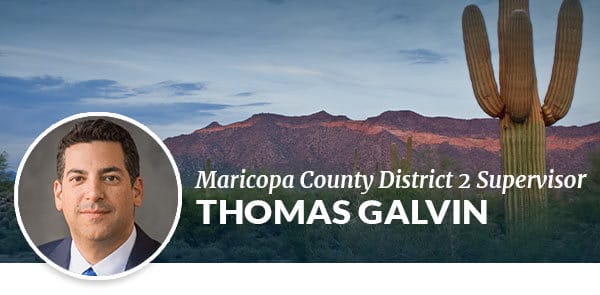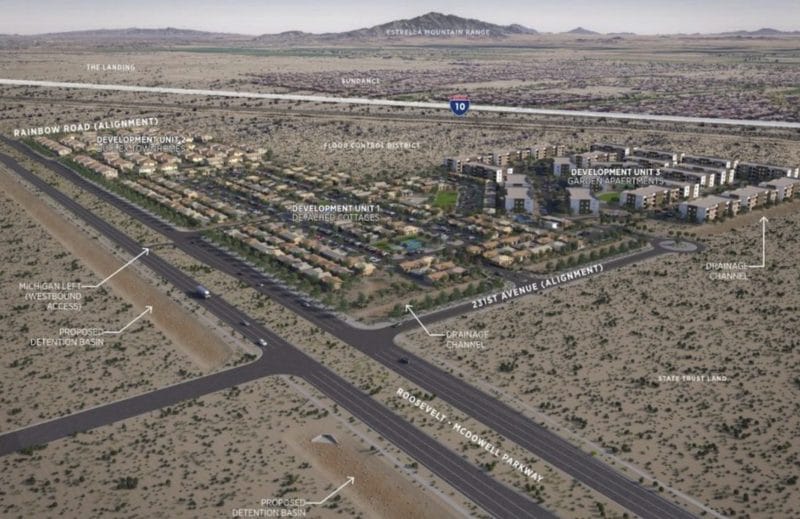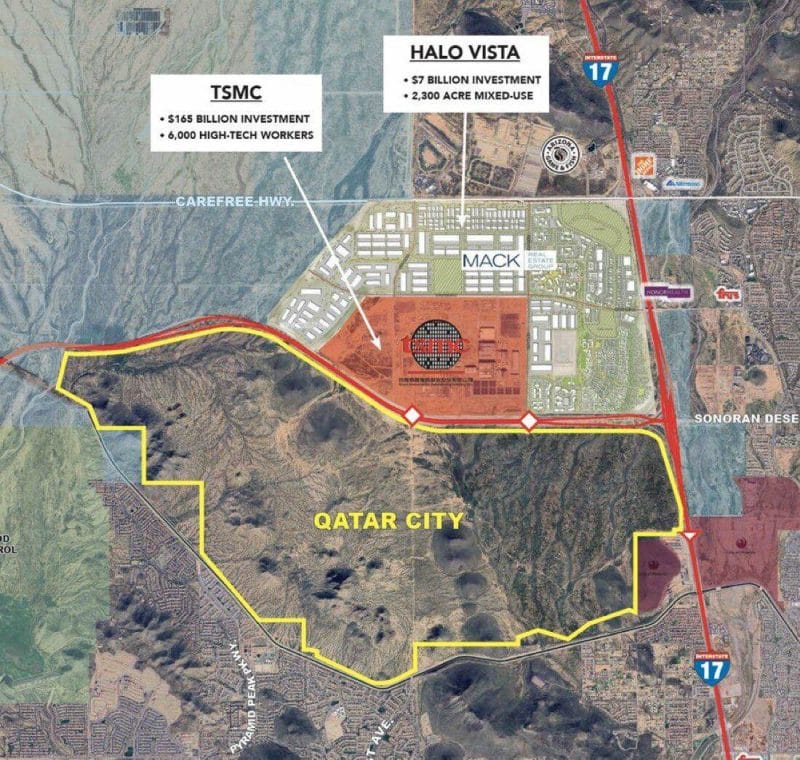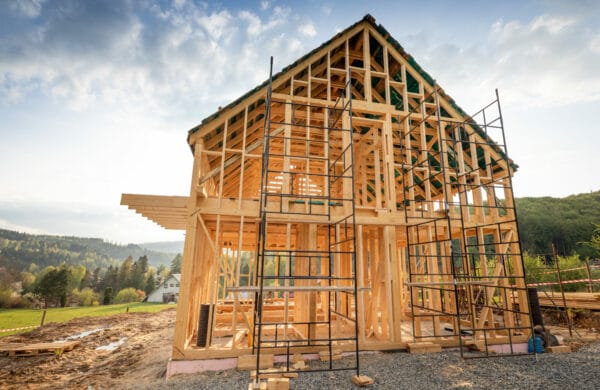Rio Verde Foothills Water Statement
The Rio Verde Foothills is a beautiful community in the northeastern part of District 2. The residents are passionate and fiercely protective of their lifestyle; dirt roads, horses and notions of limited government are common themes. A main component of that lifestyle is that most residents have private wells on their property from which they draw water. The remaining property owners rely on hauled water sourced from a standpipe located in neighboring Scottsdale. Unfortunately, the City of Scottsdale notified the Rio Verde Foothills residents that as of January 1, 2023, they will no longer have access to the standpipe and, could no longer rely on hauled water to fill their home water tanks, water their horses, or fill their swimming pools. The notification was provided before my appointment last December.
The City of Scottsdale has been discussing with the Rio Verde Foothills community, for several years, that their standpipe is not a long-term water source outside of their city boundaries. Additionally, Scottsdale has a provision in its drought contingency plan stating that if the Federal Bureau of Reclamation declares a Tier 1 water shortage for the Colorado River, which has occurred, the City would solely provide water to residents within its city limits, currently at a declared Tier 2a. The City of Scottsdale justifiably explained that it is difficult to ask its constituent customers to conserve their water usage while still supplying water to non-residents in a community not within city limits.
Several community members who rely on hauled water actively sought a solution to the impending water issue by proposing to form a domestic water improvement district (DWID), which is outlined in Title 48, Chapter 6 of the Arizona Revised Statutes. They held meetings, they gathered signatures, and they petitioned the Board. Those residents were instrumental in the effort to bring a water solution to the Rio Verde Foothills community. Their dogged and persistent efforts were not in vain. The Rio Verde Foothills community owes them a debt of gratitude.
Several months of careful consideration, due diligence, and the information provided to the Board as part of the hearing have led me to decide that the DWID proposal was not the best proposal for the whole community. It has encountered significant opposition within the community. Opposition to the DWID is based on reasons ranging from the philosophical to the practical. A large group of residents have expressed the sentiment that establishing a governmental entity is incongruous with the character of the community. And residents have expressed a justifiable concern that their neighbors overseeing a governmental entity would wield vast powers that could infringe on their property rights.
A DWID has the power of condemnation and taxation, which includes the power to condemn a well. Even though a DWID could condemn a non-DWID property and drill a well to serve the DWID’s interests the DWID Board is selected by and represents DWID members. And since the DWID is non-contiguous, it can condemn property outside its boundaries. For that to happen the DWID would have to file a condemnation action and a court would have to agree with the petitioner’s condemnation-action reasoning. Nonetheless, a successful condemnation action affects property rights. DWID board members could certainly write and adhere to provisions in bylaws explicitly stating that condemnation power will not be used, which potentially may alleviate some concerns. However, proposed DWID board members have not expressed a desire to do that; they want to retain the power to condemn.
Here is an outline of the key points on why I believe that the proposed DWID does NOT promote the “public convenience, necessity, or welfare of the Rio Verde Foothills community if it was established:
- The non-contiguous DWID proposed here would not represent the entire community
- Liens would be placed on the member properties subjecting them to substantial obligations and liabilities
- Running and managing a water utility would be a massive undertaking and I have concerns about the long-term viability of the DWID and its Board of Directors
- I have not been satisfied that the questions regarding costs have been fully answered despite the good faith efforts of the petitioners for the DWID to answer those questions
- A new governmental entity would be disruptive to the rural, independent, lifestyle and spirit of the community.
In contrast, a private water utility corporation that can address these water needs has greater support from the Rio Verde Foothills community.
An entity in the business of providing water to a customer base is a resilient, reliable, relatively affordable long-term viable solution for the Rio Verde Foothills community. A private water utility company is subject to the jurisdiction, oversight and regulation of the Arizona Corporation Commission, which is a state-wide elected regulatory body that holds public hearings on water utilities. Thanks to the leadership of Chairwoman Lea Marquez Peterson and Commissioner Anna Tovar, the Commission currently has an open docket to solicit comments and provide other options, if necessary, regarding the water situation in Rio Verde Foothills. Most of the comments already submitted to the Commission favor a private water utility company utilizing a standpipe for the entire community.
A private water utility company must go before the Commission, in a public hearing, to set a rate for the standpipe. Once a regulated water company is authorized by the Commission to serve residents, the utility must continue to provide the water service. In order to shut off the standpipe, a regulated water utility provider would once again have to go before the Commission and detail its reasoning for wishing to do so, and only then do so upon Commission approval. Since the Commission hearings are open to the public, all interested stakeholders may go before the body in a public forum and be provided an EQUAL OPPORTUNITY TO BE HEARD.
As of August 26, EPCOR, a stable and experienced water utility, submitted a letter of interest to the Commission to serve the RVF community.
In light of this progress, I hope and expect that the City of Scottsdale will take note of the considerable progress that has been made and it will continue to work with the Rio Verde Foothills community to provide access to their standpipe until a new standpipe is operational.
Therefore, I believe, a professionally run, regulated utility company that is experienced and knowledgeable about providing water is the best option. It will have the internal infrastructure and expertise to manage a standpipe and deliver water to that standpipe. Private water utilities have engineers and water professionals on staff. They are administratively and operationally sound. Ultimately, my vote to not approve the DWID creates opportunity for a whole community solution to get water when they need it. This is the best option to provide a resilient, reliable, relatively affordable water solution to all of the Rio Verde Foothills community.
I make a promise that I will continue to work with the Rio Verde Foothills, to fight on your behalf, and to speak out in the best interests of your WHOLE COMMUNITY.
Thank you.








